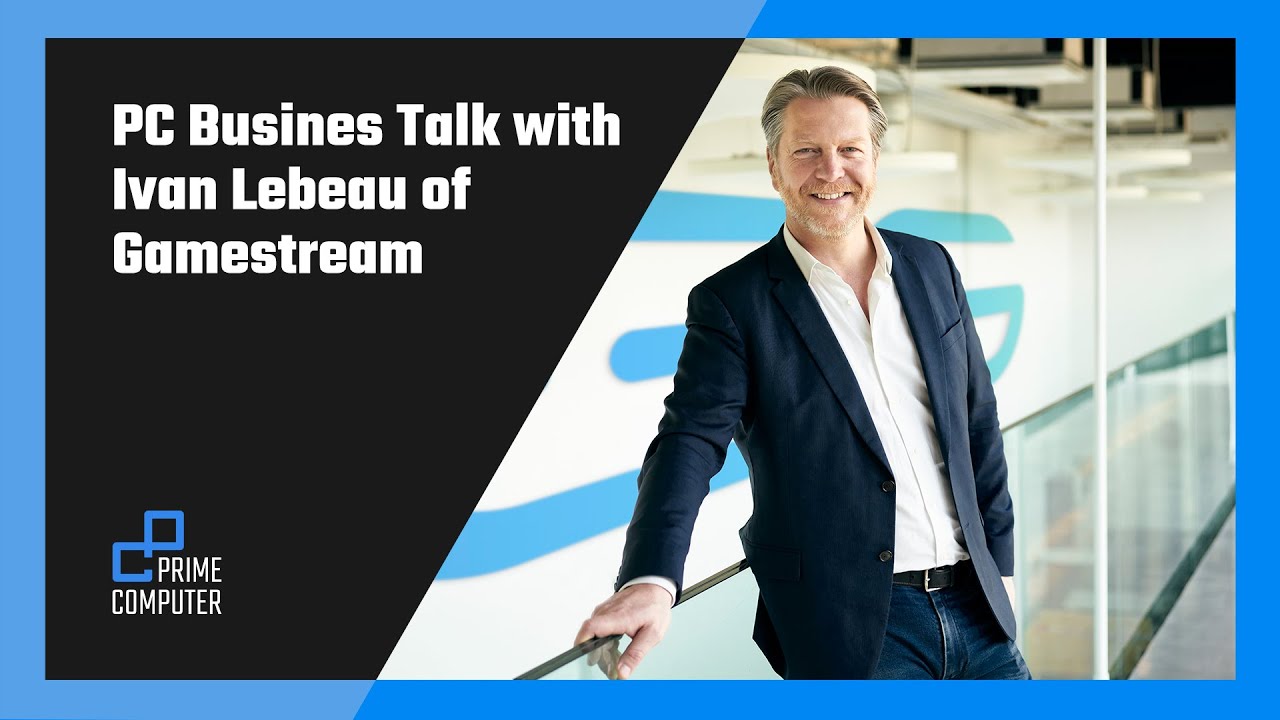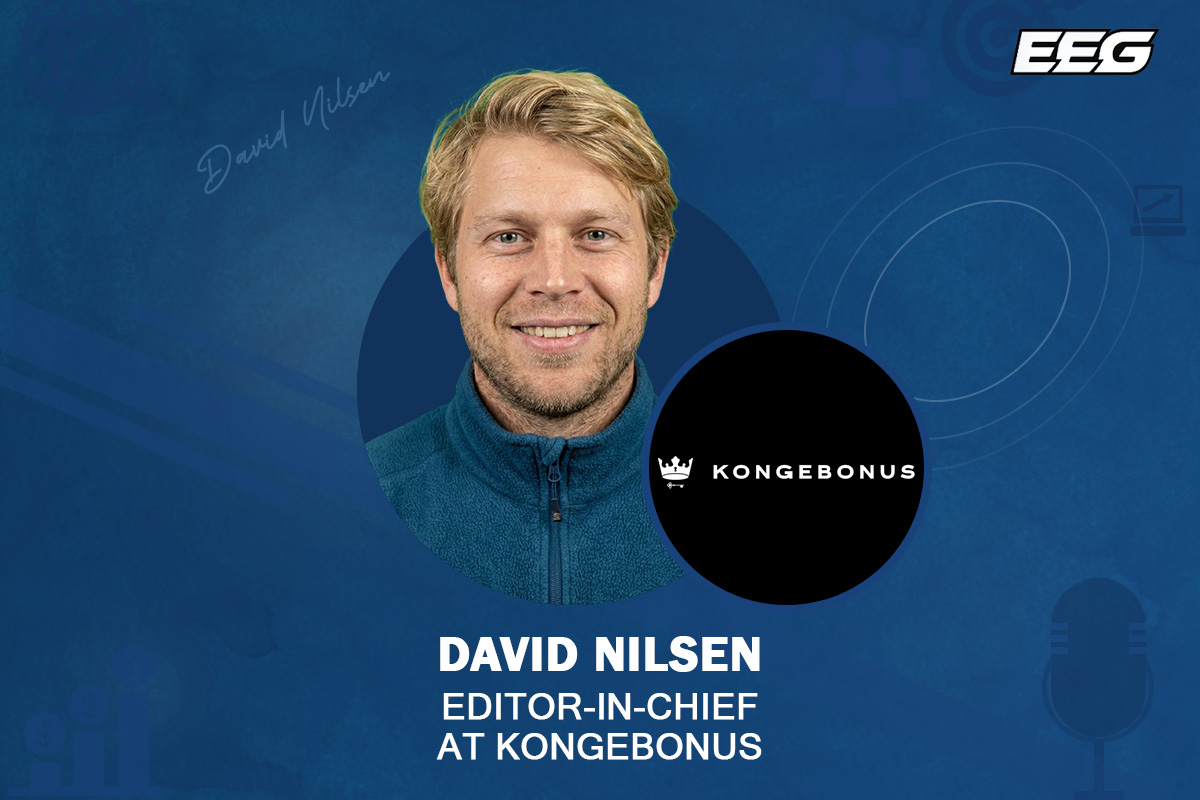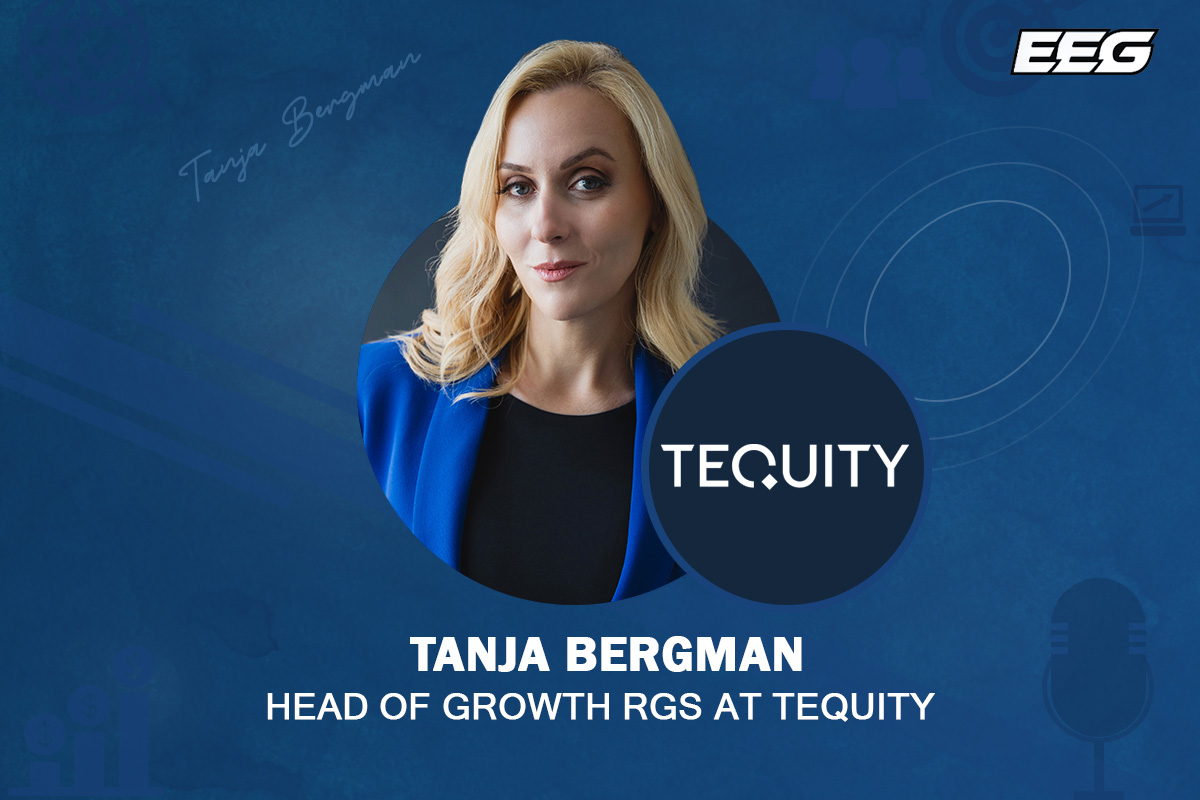Interviews
Exclusive Q&A with Ivan Lebeau, Founder and President of Gamestream

Ivan Lebeau is a gnawed veteran in the gaming industry, having worked for over 25 years in video games and technology development. Ivan founded Gamestream in 2015 with an ambition to create the most advanced global cloud video game solution for professional industries. t
Here he talks about Gamestream and what it offers. Perhaps, the most illuminating things in the interview are two-fold. First, Gamestop’s rare business model of B2B2C in the gaming industry. Second, its proprietary technology that allows seamless game streaming at internet speeds as low as 4mbps.
He also explains Gamestream’s “magic recipe” of technology. Let’s jump straight to the interview.
Q. We usually begin our founder interviews with a stock question. Here it is: What motivated you to found Gamestream?
A. My key motivation in founding Gamestream was to democratise the joys of video game experiences. I see this as making console-quality gaming available for everyone, anywhere, at any time. Gamestream’s proprietary cloud gaming technology can thrive with relatively low internet speeds, meaning it has great applications in developing countries where expensive gaming hardware and connections aren’t always realistic.
Another strong motivation is to bring video games to the hospitality and healthcare fields. Inspired by the game Re-Mission, which has been shown to help young people navigate their cancer diagnoses and treatments, we at Gamestream firmly believe in the healing power of video games. As such, we work closely with partners such as BePlayer One, which aims to make gaming more inclusive for disabled people, and L’École des Héros, which helps teenagers overcome social anxiety through games. The Gamestream platform is also compatible with the main gamepad adapted for disabled people.
Q. What is the business model of Gamestream?
A. Gamestream is a world leader in cloud video game streaming solutions that provides console-quality gaming experiences on the devices that most people already own, including smartphones (iOS and Android), TV (OTT and Smart TV), PC, Mac and tablets.
We offer our partners a complete end-to-end cloud gaming service. While they are in charge of marketing, billing and hosting, Gamestream supplies our technology, our own highly cost-effective servers, and premium content – AA and AAA titles provided by leading video games publishers – as well as sophisticated data reporting. We help our partners reduce customer churn and increase average revenue per user by enhancing their market position and entertainment hubs.
Following the proven business models of Spotify and Netflix, Gamestream’s partners offer this cloud gaming service to their customers through an affordable multi-device subscription (usually approximately $10 per month). Our customers revert a percentage of this monthly revenue to Gamestream, which we in turn distribute a proportion of amongst the games publishers that populate our catalogue. Aside from this revenue share model, we also receive a non-recurring fee from our telecom partners to adapt, integrate and maintain our service on their network.
Gamestream’s service has been deployed under both white-labelled brands across Europe, the Middle East and Asia through partners in telecoms and hospitality. Examples of this include Telekom Slovenije’s NEO Gaming and Telkom Indonesia’s GameQoo. Customers can also choose to use our consumer brand, Pleio. With Pleio we offer the same proprietary tech and gaming experiences, but under a Gamestream brand which means we take on the community management of our customers’ users who sign up to the service. Bouygues Telecom, one of the largest telcos in France, has been using Pleio since its successful launch in late 2020.
Q. How is Gamestream different from other cloud gaming services e.g. XBOX Game Pass?
A. Unlike many other cloud gaming services which still rely on specialised gaming hardware or purchasing games individually, Gamestream offers console-quality experiences that are entirely cloud based. There are no additional downloads or purchases for our users, and no advertising. Our service is also available on the six main types of device – more than any other operator in the market.
We are one of only two companies in the cloud gaming space that provide a cloud platform with a games catalogue on a B2B2C basis. This means that we typically do not have a direct relationship with the end user – they tend to be customers of our industry partners.
Gamestream’s proprietary technology allows us to offer amazing gaming experiences using internet speeds as low as 4mbps – compared to the 10-15Mbps recommended by other cloud gaming platforms. Unlike other cloud gaming services, we reduce the burden of extra bandwidth usage on telcos by closely integrating with their server infrastructure. By integrating our servers in clients’ data centres, we can offer a much more cost-effective and profitable solution than other providers. It also means our service performs excellently in markets with less developed network infrastructure – but imagine also the incredible experiences we will be able to achieve with 4K, VR and AR as the 5G rollout gathers pace!
Q. In what ways do game publishers benefit from associating with the Gamestream platform?
A. Gamestream currently licenses games from more than 60 publishers including Disney, Capcom, Deep Silver, Codemasters, Focus Home Interactive and many others.
First of all, we provide a welcome additional income stream for them, with both brand new and popular legacy games being a good fit for our catalogue. We make this incredibly simple by porting a single version of their games onto our service and allowing users to play it on TV, Android & iOS Smartphones, PC, Mac, and Smart TV.
In addition, we open up exciting new markets for them. This includes emerging economies in Asia, the Middle East and Eastern Europe – and soon India – as well as hospitality (starting with hotels, which is a brand new stream of revenue for games publishers).
Q. You have formed partnerships with several telecom operators. How important are these partnerships for Gamestream’s growth?
A. We started our white label deployments in 2019 with major telecom operators in Indonesia and Dubai, then in Taiwan, Europe (2020) and very soon in India.
These partnerships are a key part of our growth, providing ready-made access to millions of potential subscribers and existing marketing and billing infrastructure operated by the telcos themselves. The reach of our service will hit 80m potential users by the end of 2021 and 400m by the end of 2022 – how else could we reach so many potential subscribers so rapidly?
Secondly, launching in these markets helps us to better understand the local gaming trends. We add local games to our catalogue, and have a growing expertise on local usages as well as the best marketing strategies for user acquisition.
This global understanding of markets and user bases is allowing us to launch dedicated cloud services for video games publishers themselves. High-quality content is vital to creating successful cloud gaming services – so who better to launch them than the content creators themselves? Using Gamestream’s technology, developers can offer demos of their games in the cloud, or even start their own cloud gaming service to become media brands in their own right.
Q. Gamestream also caters to the hospitality industry, for instance hotels and cruise ships. How has the response of the hospitality industry been, especially during and the aftermath of Covid 19 pandemic?
A. Much of the hospitality industry has of course been negatively impacted by the Covid-19. However, with the wider growth in gaming we have seen throughout the pandemic, it has become even more pressing for hospitality providers to find ways to integrate gaming into their offer to customers.
We have a number of growing partnerships with innovative brands such as Accor, which requested that their cloud gaming services be reactivated immediately after reopening, and expect to cultivate more throughout 2021.
Q. What are the benefits and advantages a business – a hotel, hospital or a cruise ship – can gain from Gamestream?
A. Innovation is a key topic in the hospitality and tourism industries to recover from the global pandemic. We travel to escape, to socialise, to boost our wellbeing. Increasingly, people and families do this via the medium of games. Likewise, encouraging millennials and Gen X to choose a hotel or resort over an AirBnB means catering directly to them.
We’ve already seen brands such as Atari plan gaming-theme hotels. While it isn’t possible for most hospitality companies to tear up their business model and start again, it is very simple to integrate a world class cloud gaming offering for their customers. The upshot is retaining customers and attracting new ones, as well as boosting spend in communal areas.
At Gamestream we can do this for our global customers via data centres or local installation, meaning it’s possible for them to offer a cloud gaming service even without fibre optic broadband. We can integrate the service directly with Samsung, Phillips and a large selection of Android Smart TVs, or via a discreet plug-in where TVs have not recently been upgraded. As with telcos, there is no capital expenditure on the part of the hospitality brand.
As well as in-room we have seen great demand in communal areas such as lobbies and kids’ play areas. Our service is likewise perfect for resorts, holiday camps, cruise ships, ski areas – the list is limitless. We are also exploring how our service can be used to provide esports experiences in shared spaces.
Q. In which countries do you operate now? Any immediate plans of expansion?
A. Our cloud gaming service is available on three continents already. From France and Switzerland to Taiwan, Slovenia, Indonesia, the UAE and soon India, people are enjoying unlimited access to our catalogue.
In terms of expansion, we have tripled our revenue over the past year and are on our way to doubling the size of the organisation this year. We expect to continue growing our global customer base in telecoms, hospitality and healthcare – our cloud gaming service can be deployed rapidly in any territory!
Cloud gaming is the best use case for 5G, and you can expect to see us grow particularly in Asia and the Middle East where 5G is rolling out. According to Newzoo, the value of the cloud gaming market is on track to exceed the five-billion-dollar mark in 2023, demonstrating the sheer scale of opportunity available.
Q. Finally, could you share some insights into the technology on which Gamestream platform is built?
A. Gamestream’s magic recipe is a combination of tried and tested, industry-grade technology with a seamless modern interface, leading games catalogue and multi-device strategy.
What enables us to provide such a high-quality experience even on relatively slow connections is our ability to compress and scale graphics using a video compression standard called H265. We also go into the very code of the games in our catalogue to define the processing power they need and are incredibly agile at distributing server load. In essence, we use cloud technology to inject the processing power of the most powerful computers into the ordinary, everyday devices that people own.
Powered by WPeMatico
AI
Why operators are choosing to buy in their AI strategy

In an industry where margins are thin and player loyalty is fleeting, customer experience has become a key differentiator for operators. As AI becomes a core operational requirement, leadership teams face a clear choice: build proprietary technology in house, or partner with purpose built AI CX providers.
Alex Gould, CTO at Conduet, explains why more operators are choosing the latter.
What industry-specific CX challenges can an exterior solution address ‘out of the box’ compared to a generic build?
Generic AI struggles in sports betting and iGaming because player inquiries are shaped by complex, domain-specific rules and edge cases. Questions about settlements, promotions, withdrawals, or cash outs are rarely straightforward. They depend on wager structure, timing, eligibility criteria, and operator-specific logic.
Over 80% of player inquiries require pulling live, account-specific information from the PAM and applying it correctly within that broader rule set. Without purpose-built logic to interpret both the data and the edge cases around it, responses quickly become incomplete or incorrect.
This limitation is reflected more broadly in enterprise AI adoption. Research from MIT found that 95% of enterprise AI initiatives fail to deliver measurable business impact, often because broadly trained models are pushed into live environments without the domain context needed to handle real-world variability. What appears to work in controlled testing breaks down once exposed to operational complexity.
Purpose-built platforms are designed around this reality. By training on gaming-specific data, workflows, and failure modes, they can interpret live PAM data in context and handle both common and complex inquiries accurately from day one, without relying on extensive rules, manual escalation, or post-deployment patchwork.
How would you characterise the current skills gap within operator teams regarding AI implementation?
Operator CX teams are closest to the customer and understand where friction exists. The challenge is not identifying opportunities, but delivering AI that performs reliably in production. Turning insight into production-ready capability requires technical depth, dedicated ownership, and sustained iteration that sit outside the remit of most CX organisations.
Deploying AI in gaming requires expertise across model evaluation, conversation design, failure handling, and real-time interaction with PAMs and ticketing systems. It also requires ongoing investment to monitor performance, manage edge cases, and improve outcomes as volumes and player behaviour change. CX teams are structured to run day-to-day operations, which makes sustaining this work in parallel difficult.
As a result, many internal AI CX efforts stall or remain narrow in scope, not because the opportunity is unclear, but because the execution burden is too high.
What is the average time to market using a specialist platform, versus a full in-house build?
In-house AI efforts typically take 18 to 36 months to reach enterprise-ready scale. The delay is driven by the need to coordinate across CX, product, data, and engineering while establishing new ownership and operating models inside live CX environments.
A specialist platform compresses this timeline materially. With gameLM, operators can move from concept to live inbound CX in six to 12 weeks. Operators achieve 60%+ resolution within 90 days, scaling toward 80%+ shortly thereafter.
Why does a purpose built partnership model matter in iGaming & OSB CX?
In iGaming and online sports betting, the challenge is not adopting AI, but making it work reliably at scale. Generic platforms often shift the burden onto operators after deployment, requiring significant time and internal effort to adapt the technology to gaming-specific realities. That effort compounds as complexity grows.
A purpose built partnership model changes that dynamic. Instead of operators spending months closing gaps, AI is deployed using operating patterns already proven in live gaming CX. Common failure modes, escalation paths, and performance tradeoffs are understood upfront, reducing the need for downstream rework and ongoing firefighting.
Conduet applies this approach through gameLM, informed by operating a 500+ agent gaming CX organisation. That operating knowledge functions as an embedded R&D capability, shaping how the platform is tuned, prioritised, and extended alongside each operator’s environment. Inbound CX performance today directly informs the development of additional, gaming-specific capabilities such as reactivation, payments optimisation, and fraud prevention.
The result is a partnership model that delivers strong outcomes without transferring the hidden cost of adaptation and maintenance back to the operator, allowing CX capability to keep pace as the industry evolves.
Alex Gould is the CTO at Conduet, where he leverages his technical and strategic background to guide technology strategy and innovation. He is also the Founder and CTO of Everyday AI and previously founded computer vision company ViewX. Alex’s earlier experience includes roles at Primary Venture Partners and Bain & Company, and he holds an MBA from Columbia Business School and a Bachelor of Engineering (Hons) from the University of Canterbury.
The post Why operators are choosing to buy in their AI strategy appeared first on Eastern European Gaming | Global iGaming & Tech Intelligence Hub.
Interviews
Inside the Kongebonus Awards: What Norway’s Players Are Telling the iGaming Industry

As the only iGaming awards originating from Norway, the Kongebonus Awards are decided entirely by open player voting, offering a rare, unfiltered view into what truly resonates with a dedicated gaming community. Kongebonus Editor-in-Chief, David Nilsen, explains how this year’s results reflect shifting player expectations, highlight both emerging and established studios, and contribute to wider industry conversations around quality, innovation and long-term engagement.
The Kongebonus Awards are now in their fourth year. How have you seen them evolve since the first edition?
Since the first edition, the Kongebonus Awards have grown both in reach and in significance. What started as a way to highlight standout games for our Norwegian audience has developed into a recognised annual moment where player sentiment is clearly reflected back to the industry. Each year we see greater engagement from the community and more awareness among studios and suppliers about what the awards represent. The structure has also matured, with categories that better capture the diversity of modern game development. Most importantly, the awards have become a consistent reference point for which games and providers have truly connected with players over the past year, giving the results increasing weight within the wider iGaming conversation.
This year’s awards were presented in connection with ICE Barcelona. How important is it to connect a Norwegian, player-driven initiative with the wider international industry?
Connecting the awards to an international event like ICE Barcelona helps bring local player insight into the global industry spotlight. While the voting comes from Norwegian players, the studios and games involved operate across many markets. Presenting the results in that setting underlines that player preferences in Norway are part of wider trends in iGaming. It also allows international stakeholders to see how a Nordic audience responds to different styles of games, mechanics and themes. That perspective can be valuable for product planning and market strategy.
This year’s winners were decided through open public voting. Why is it important that the results reflect the voice of players so directly?
Having the winners decided through open public voting ensures the results are grounded in real player experience. The recognition comes directly from the people who have spent time with the games, formed opinions and chosen their favourites. That gives the awards a strong sense of authenticity. It moves the focus away from internal industry perspectives and places it firmly with the end users. For studios, this kind of recognition signals that their work has genuinely resonated with players, not just performed well commercially. Player-led results offer a clear and transparent indicator of which games and providers have built lasting appeal, and that makes the outcomes especially meaningful within the industry.
The awards focus not only on commercial performance, but also on quality, innovation and player experience. From this year’s winners, what stood out most to you?
What stood out most was the balance between creativity and accessibility. Players clearly reward innovation, but only when it is paired with strong execution and an enjoyable overall experience. Many of the recognised titles combine distinctive mechanics with clear game identity and smooth gameplay. There is also evidence that consistency matters. Studios that repeatedly deliver engaging, reliable experiences tend to build strong followings, and that loyalty is reflected in the voting.
How do categories such as Rising Star Game Developer and the Readers’ Hall of Fame help ensure the awards spotlight both emerging studios and more established names?
These categories make sure the awards reflect the full spectrum of achievement in the industry. The Rising Star category gives visibility to newer studios that are already making a strong impression with players through innovation and creativity, even if they do not yet have the scale of the largest providers. In contrast, the Readers’ Hall of Fame recognises games that have achieved lasting popularity and become long-term favourites. Including both perspectives shows that excellence is not limited to one stage of growth. It highlights that players value both fresh ideas and proven experiences.
Looking ahead, how do you expect the awards to continue growing, and what role do you see Kongebonus playing in shaping player-led conversations in the industry?
As player expectations continue to change, the awards will develop alongside them. The aim remains to document and highlight the studios and games that genuinely stand out from a player perspective. Over time, this may mean refining categories or exploring new ways to reflect emerging trends, while keeping open voting at the core. Kongebonus will continue to act as a bridge between players and the industry, translating community sentiment into insights that studios and suppliers can learn from. By keeping the focus on player experience and feedback, the awards can play a growing role in encouraging the industry to prioritise quality, innovation and long-term player engagement.
To find out more about this year’s Kongebonus Awards and see the full list of winners, visit: https://www.kongebonus.com/nyheter/vinnere-av-kongebonus-awards-2025/
The post Inside the Kongebonus Awards: What Norway’s Players Are Telling the iGaming Industry appeared first on Eastern European Gaming | Global iGaming & Tech Intelligence Hub.
Interviews
Scaling innovation through the launch of Tequity Publishing

Following the announcement of its new publishing vertical and the successful debut of Royal Drop, we sat down with Tanja Bergman, Head of Growth RGS at Tequity, to discuss how this new arm is set to dismantle technical barriers for ambitious studios and why scalability is the new frontier for the ‘Burst Games’ genre.
Tequity has just officially launched its Publishing vertical. What was the primary catalyst behind this move?
The industry is currently in a fascinating place. There is no shortage of creative talent among studios, but there is a massive technical bottleneck. We have seen so many ambitious studios with incredible concepts – especially those moving beyond traditional slots – who have been getting bogged down in terms of getting those concepts out into the marketplace.
The catalyst for Tequity Publishing was simple. We wanted to break down those technical barriers. By handling the infrastructure, distribution, and compliance frameworks, we allow studios to do what they do best, which is build outstanding games. It’s about speed-to-market without compromising on the quality or the vision of their content.
The launch coincides with the release of Royal Drop. How does this game, and the partnership with Mirror Image Gaming and The Fortune Engine, showcase what Tequity Publishing is all about?
Royal Drop is the perfect proof of concept. It’s a collaboration that highlights three important pillars of modern game delivery. You have Mirror Image Gaming bringing that fresh, video-game-influenced Burst Games energy, The Fortune Engine provide the math tools and templates, and Tequity Publishing offers the global scale and distribution pathway.

It shows that when you remove operational friction, you can create a game-first experience that appeals to a new generation of players who want something more interactive than a standard 5×3 reel.
Tequity Publishing offers two models: RGSaaS and RGS-to-RGS. Can you walk us through the strategic benefits of each?
Flexibility is key, because no two studios are at the same stage of their journey. The RGSaaS model is our full-service offering. It’s designed for studios that want to focus 100% on the creative side. We provide the entire infrastructure and publishing framework and it is essentially a business-in-a-box for game creators.
The RGS-to-RGS model is a more streamlined, tech-first approach for studios that already have their own RGS but lack the distribution muscle. It allows them to plug into our growing operator and aggregator network instantly. Both models are built on the same philosophy: helping studios reach parts of the market they otherwise couldn’t access on their own.
You mentioned reaching new generations of players. How does this vertical specifically empower studios to innovate in ways they couldn’t before?
When a studio is concerned about how they are going to integrate with a multitude of different operators or how to navigate complex jurisdictional requirements, they tend to play it safe. They stick to what they know.
By taking that weight off their shoulders, we give them the opportunity to be brave. Studios like Mirror Image Gaming are pushing the boundaries of modern iGaming, taking influences from the video game world. This is exactly what the new generation of players is looking for. We provide the scalability so that these niche, innovative ideas can achieve mass-market impact.
It’s been a busy period for Tequity, following the success of your Originals series and the iBankroll partnership. How does the Publishing vertical fit into the broader Tequity roadmap for 2026?
It’s all part of becoming the ultimate technology partner for the gaming industry. Whether it’s our streamer-friendly Originals or our Bankroll-as-a-Service offering, the goal is to provide scalable, customisable solutions. Tequity Publishing is the natural evolution of that mission. We aren’t only providing the tools anymore, but also the pathway to the player. Looking ahead, you can expect a series of further launches through our three-way collaborations. We’re proving that the barrier to entry for innovation has never been lower.
Finally, for studios looking to scale quickly, what is your main message to them?
Don’t let technical noise drown out your creative signal. If you have a game concept that breaks the mould, you shouldn’t have to spend years building the distribution architecture to get it seen. That’s what we’re here for. We want to help you launch at a speed and scale that matches your ambition, so that you can make a significant splash in the industry.
The post Scaling innovation through the launch of Tequity Publishing appeared first on Eastern European Gaming | Global iGaming & Tech Intelligence Hub.
-

 ACMA5 days ago
ACMA5 days agoACMA Blocks More Illegal Online Gambling Websites
-

 Aurimas Šilys5 days ago
Aurimas Šilys5 days agoREEVO Partners with Betsson Lithuania
-

 CEO of GGBET UA Serhii Mishchenko4 days ago
CEO of GGBET UA Serhii Mishchenko4 days agoGGBET UA kicks off the “Keep it GG” promotional campaign
-

 Canada4 days ago
Canada4 days agoRivalry Corp. Announces Significant Reduction in Operations and Evaluation of Strategic Alternatives
-

 Latest News3 days ago
Latest News3 days agoTRUEiGTECH Unveils Enterprise-Grade Prediction Market Platform for Operators
-

 Central Europe5 days ago
Central Europe5 days agoNOVOMATIC Once Again Recognised as an “Austrian Leading Company”
-

 AI4 days ago
AI4 days ago2026 Rewards AI Capability, Not AI Talk – HIPTHER Prague Summit Unveils the Next-Era HIPTHER Academy
-

 Firecracker Frenzy™ Money Toad™4 days ago
Firecracker Frenzy™ Money Toad™4 days agoAncient fortune explodes to life in Greentube’s Firecracker Frenzy™: Money Toad™



















